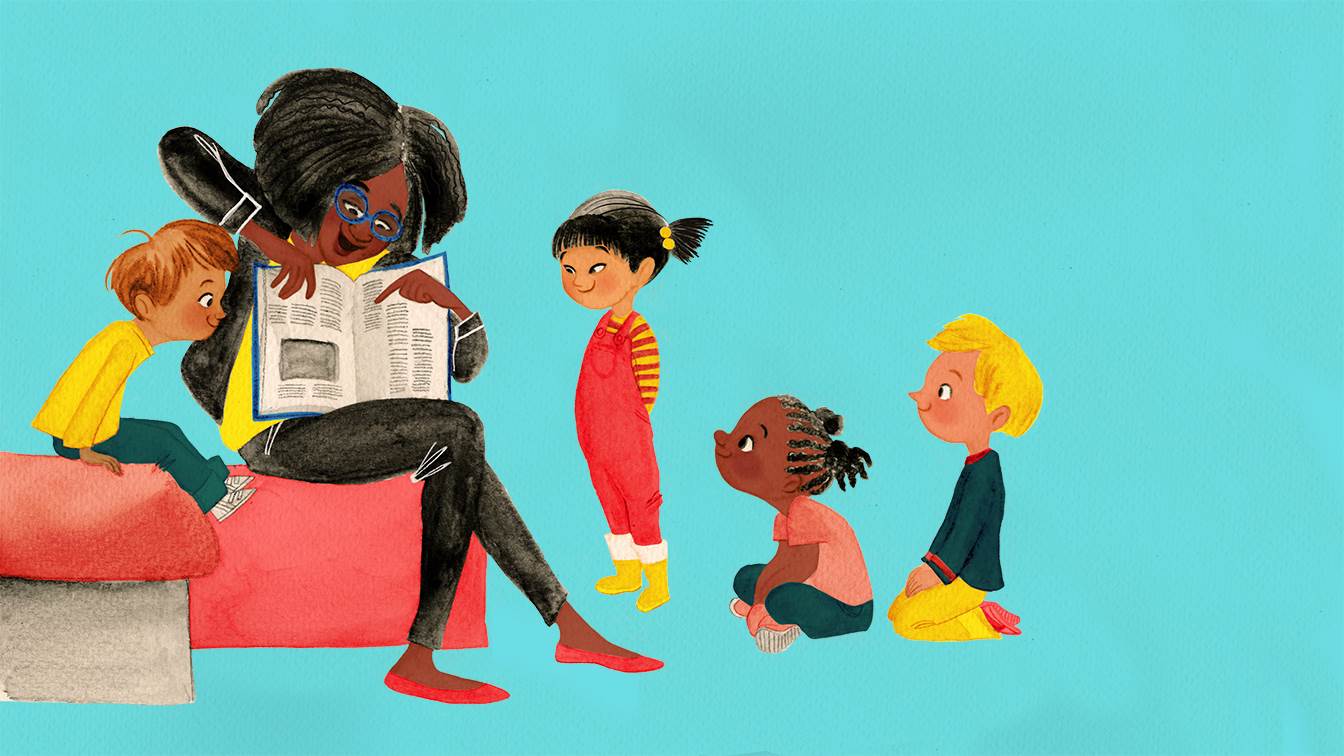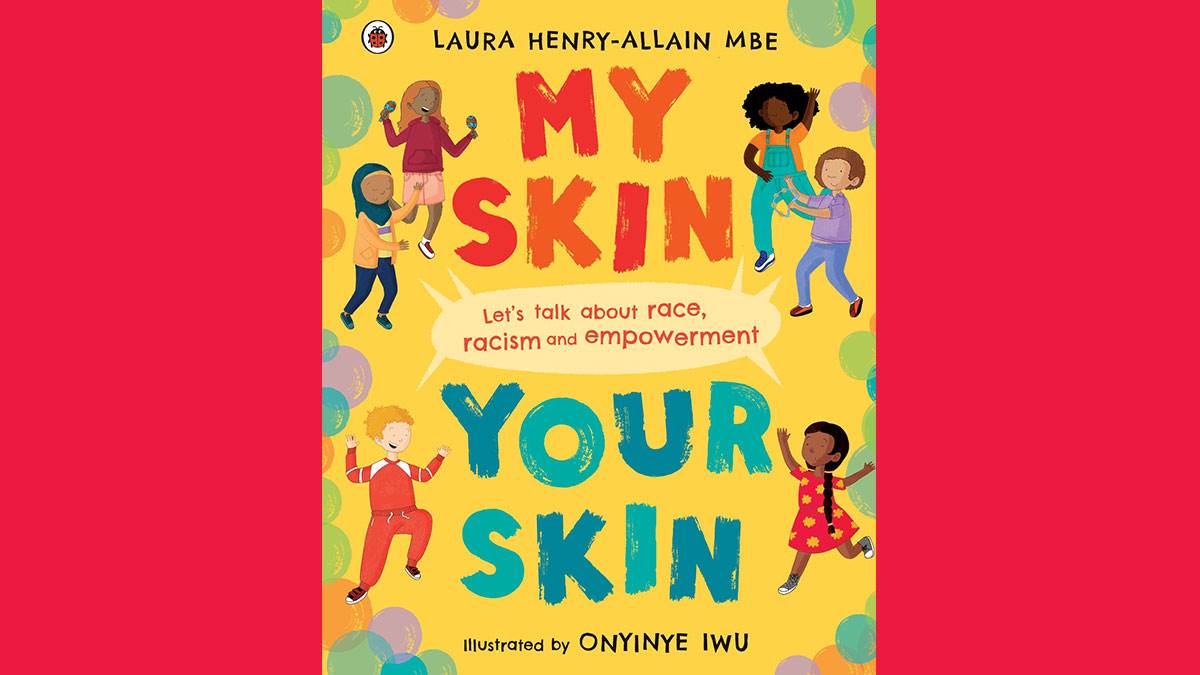We need to talk to young children about racism – and here's the reason why
Published on: 21 October 2021 Author: Laura Henry-Allain
Laura Henry-Allain MBE – author and award-winning expert in Early Years education and children's media – has seen first-hand how conversations about racism and diversity can inspire and enrich young children. After all, our differences are what make us amazing.
 Illustration by Erika Meza
Illustration by Erika Meza
Discussion of race and racism may seem like something that is not meant for the ears of children; that they are too young to understand.
But from my experience of working within education for more than 30 years, I strongly believe that we must have these discussions – even with young children. Some children have already experienced racism from their peers in their pre-school years, which can be verbal, physical and emotional. It can have a lasting impact on their emotional and mental wellbeing. At the moment, these children are unlikely to be afforded the opportunity to discuss what they have experienced first-hand.
Equally, if children ask us questions about race and racism, we must not brush them aside but should answer as honestly and truthfully as we can in a way that they understand, which will of course depend on their age, stage and ability.
'We are all different'
I wrote My Skin, Your Skin as a starting point for adults to begin discussions with children on race, racism and empowerment. This doesn’t mean that by reading this book with children they will become anti-racist overnight. It is a book that you can read or listen to with a child a few times, and stop and pause and discuss the pages, asking open-ended questions that will gauge where children are in terms of their understanding and intellectual ability.
There are many “pause to ponder” moments in the book. For example, there is a page that opens: ‘We are all different’. I state that our skin and eye colours are different; we could be small or big; tall or short. There are further reflections that children may belong to different religious groups or that they may not be religious at all. Equally, a child may live with a mum, dad, two mums, a grandparent, or in a foster family. This is an important part of the book – for children to consider their own differences and how our differences make us amazing.
Prepared for the diverse world we live in
It is often said that people don’t see colour and differences and that we are all the same. This can sometimes be because people think it is kind to say we are all the same and we don’t want to cause offence, or we don’t feel we have the language to explore this further. This doesn’t actually help children to have an appreciation that people are different and that we are all individual.
This can be the same if a child doesn’t live in a diverse area or attend a diverse school; it can be felt that there’s no need to discuss race and racism as this has nothing to do with these children. Quite the contrary, it is even more important that children who are not raised in a diverse community have discussions about race and see black and brown people in positive roles in books, television, and the media.
It is incredibly important that all children, irrespective of geography, are prepared for the diverse world that they live in and have more of a global view of the richness that black and brown people bring to society. We can view this as a teachable moment as part of children’s learning and development.

My Skin, Your Skin: An Early Introduction to Race and Racism by Laura Henry-Allain, illustrated by Onyinye Iwu
In My Skin, Your Skin, I wrote a strong statement: ‘We discover that people from different races and cultures created objects and ideas that changed the way we do things every day. There is so much to celebrate in this wonderful world.’
Indeed, there is so much to celebrate, and it is vital that every child learns factual and informative knowledge about how black and brown people have indeed made significant and meaningful contributions to the world we live in.
Racism is bullying and it's never OK
Children also need to know that racism is bullying and we do not tolerate bullying and neither should we tolerate racism. In My Skin, Your Skin, I firmly state: ‘Racism is bullying. Racism makes others invisible. Racism is like hitting someone. Racism is not right.’ Likewise, ‘It is never OK for someone to be racist to you or anyone else. It is never OK for you to be racist to other people.’
I believe that these words will help children to know that racism is wrong.
In the book, I consider what children should do if they experience or witness racism. ‘You must tell an adult. This could be a parent, teacher or any grown-up who is special to you.’
'People can be anything they want to be'
I want every child to know that their race isn’t a barrier to who they are and who they might become. In My Skin, Your Skin, there is a page that affirms this: ‘People can be anything they want to be. Race has nothing to do with what someone can achieve.’ I then write: ‘Anyone can be…’, and the talented Onyinye Iwu has illustrated a number of job roles on this page to make this point.
It’s important that children see black and brown people celebrating life in normal day-to-day activites, and books are a wonderful tool for this. As children form views about the world and other people, it is important that the opinions that they form about black and brown people are positive.
Equally, for black and brown children to see the joy of themselves mirrored back to them in print is truly magical.
Laura Henry-Allain MBE (@LauraHAllain) is an award-winning international writer, speaker and consultant. She is the creator of the well-loved CBeebies characters JoJo and Gran Gran, as well as the series' associate producer. She is also executive producer on a few shows that are currently in development. She is the vice-president of the British Association for Early Childhood Education, and is an educational consultant for several well-known brands as well as children's media, television and publishing.
Laura's new children's book My Skin, Your Skin, illustrated by Onyinye Iwu and published by Ladybird Books, explores race and anti-racism, and empowers children to be the best versions of themselves.
Topics: Diversity (BAME), Features





